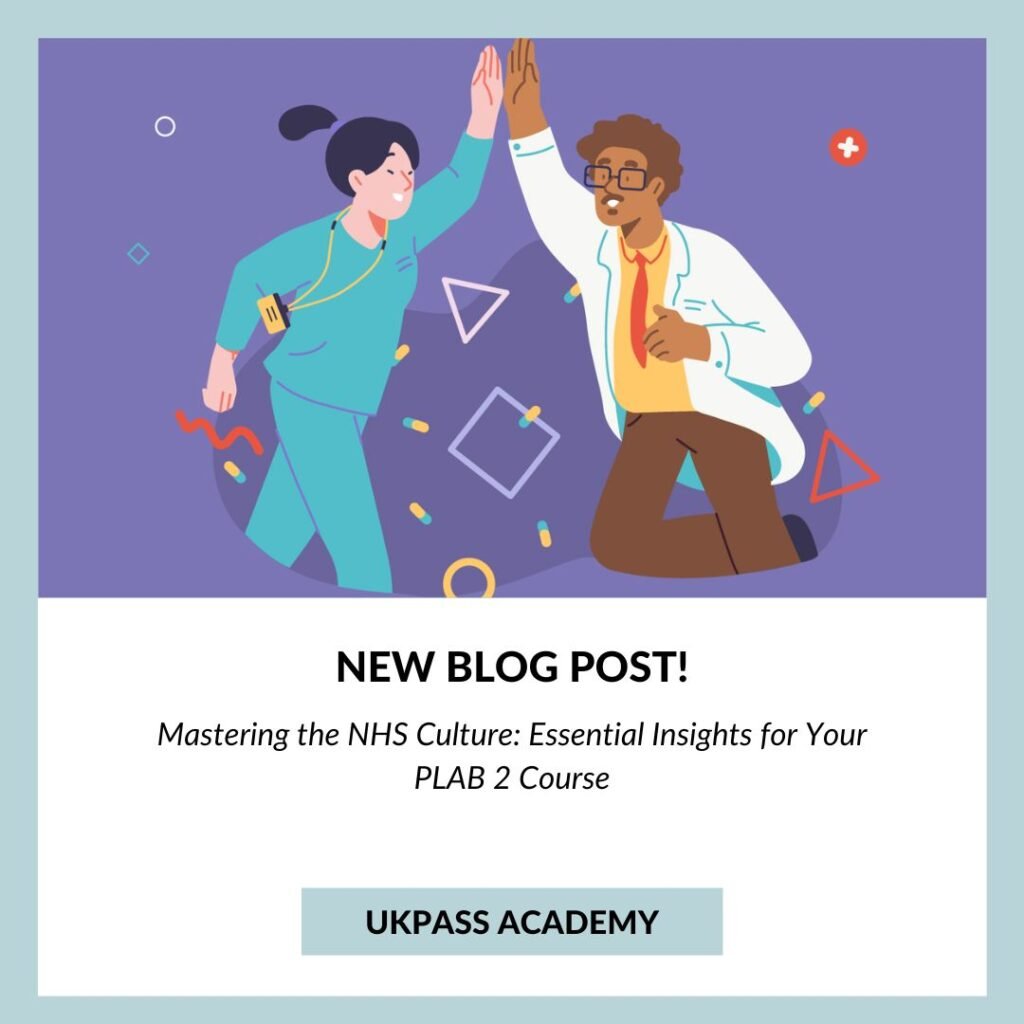As an aspiring healthcare professional in the UK, understanding the cultural nuances of the National Health Service (NHS) is crucial for your success in the PLAB 2 exam and your future career. The NHS is not just a healthcare system; it is a deeply rooted institution that embodies a unique set of values, principles, and expectations from its staff. By delving into the NHS culture, you can better navigate scenarios and interactions during your PLAB 2 course and ultimately deliver high-quality patient care.
The Core Values of the NHS
The NHS is founded on the principle of providing comprehensive healthcare services to all citizens, regardless of their ability to pay. This commitment to universal and equitable healthcare is at the heart of the NHS culture. As a healthcare professional, you will be expected to uphold these values by treating all patients with respect, dignity, and compassion, without discrimination.
In addition to equity, the NHS also emphasizes the importance of patient-centered care. This means putting the needs and preferences of patients at the forefront of decision-making processes. During your PLAB 2 course, you will encounter scenarios that test your ability to communicate effectively with patients, involve them in treatment decisions, and prioritize their well-being.
Professionalism and Ethical Conduct
The NHS culture demands a high level of professionalism and ethical conduct from its healthcare professionals. This includes maintaining strict confidentiality, adhering to codes of conduct, and upholding the principles of informed consent. During your PLAB 2 course, you will be evaluated on your ability to navigate ethical dilemmas and make decisions that align with the NHS’s ethical standards.
Interprofessional Collaboration
Effective healthcare delivery in the NHS relies heavily on interprofessional collaboration. As a healthcare professional, you will be expected to work closely with colleagues from various disciplines, including nurses, pharmacists, therapists, and social workers. Your PLAB 2 course will likely include scenarios that assess your ability to communicate effectively with members of the healthcare team, recognizing their respective roles and contributions to patient care.
Continuous Professional Development
The NHS culture places a strong emphasis on continuous professional development (CPD). Healthcare professionals are expected to stay up-to-date with the latest medical advancements, evidence-based practices, and guidelines. During your PLAB 2 course, you may encounter scenarios that test your knowledge of current best practices and your willingness to engage in lifelong learning.
Resource Management and Cost-Effectiveness
As a publicly funded healthcare system, the NHS operates under financial constraints. Healthcare professionals are expected to be mindful of resource allocation and cost-effectiveness when making treatment decisions. Your PLAB 2 course may include scenarios that evaluate your ability to balance clinical effectiveness with resource considerations, while still providing high-quality care.
Cultural Sensitivity and Diversity
The UK is a culturally diverse society, and the NHS serves patients from various backgrounds. As a healthcare professional, you will be expected to demonstrate cultural sensitivity and respect for diversity. During your PLAB 2 course, you may encounter scenarios that test your ability to communicate effectively with patients from different cultural backgrounds, considering their beliefs, values, and preferences.
Preparing for the PLAB 2 Course
To excel in your PLAB 2 course and ultimately succeed in the exam, it is essential to immerse yourself in the NHS culture. This can be achieved through various means:
1. Study NHS Guidelines and Policies: Familiarize yourself with the NHS Constitution, ethical codes, and clinical guidelines. Understanding these documents will provide you with a solid foundation for navigating scenarios and making decisions aligned with NHS principles.
2. Seek Mentorship: Connecting with healthcare professionals currently working in the NHS can offer invaluable insights into the day-to-day realities of the NHS culture. Their experiences and guidance can help you better understand the expectations and challenges you may face.
3. Engage in Role-Playing and Simulations: Many PLAB 2 course providers offer opportunities for role-playing and simulations. These exercises can help you practice communication skills, ethical decision-making, and interprofessional collaboration within the context of the NHS culture.
4. Attend NHS Workshops and Seminars: Look for workshops, seminars, or conferences organized by the NHS or related organizations. These events can provide valuable information on the latest developments, policies, and cultural shifts within the NHS.
5. Reflect on Your Own Cultural Background: Recognize and reflect on your own cultural values, beliefs, and biases. This self-awareness can help you better understand and navigate cultural differences, enhancing your ability to provide culturally competent care within the NHS.
Conclusion
By immersing yourself in the NHS culture throughout your PLAB 2 course, you will not only increase your chances of success in the exam but also lay a strong foundation for a rewarding and fulfilling career as a healthcare professional within the UK’s healthcare system.

